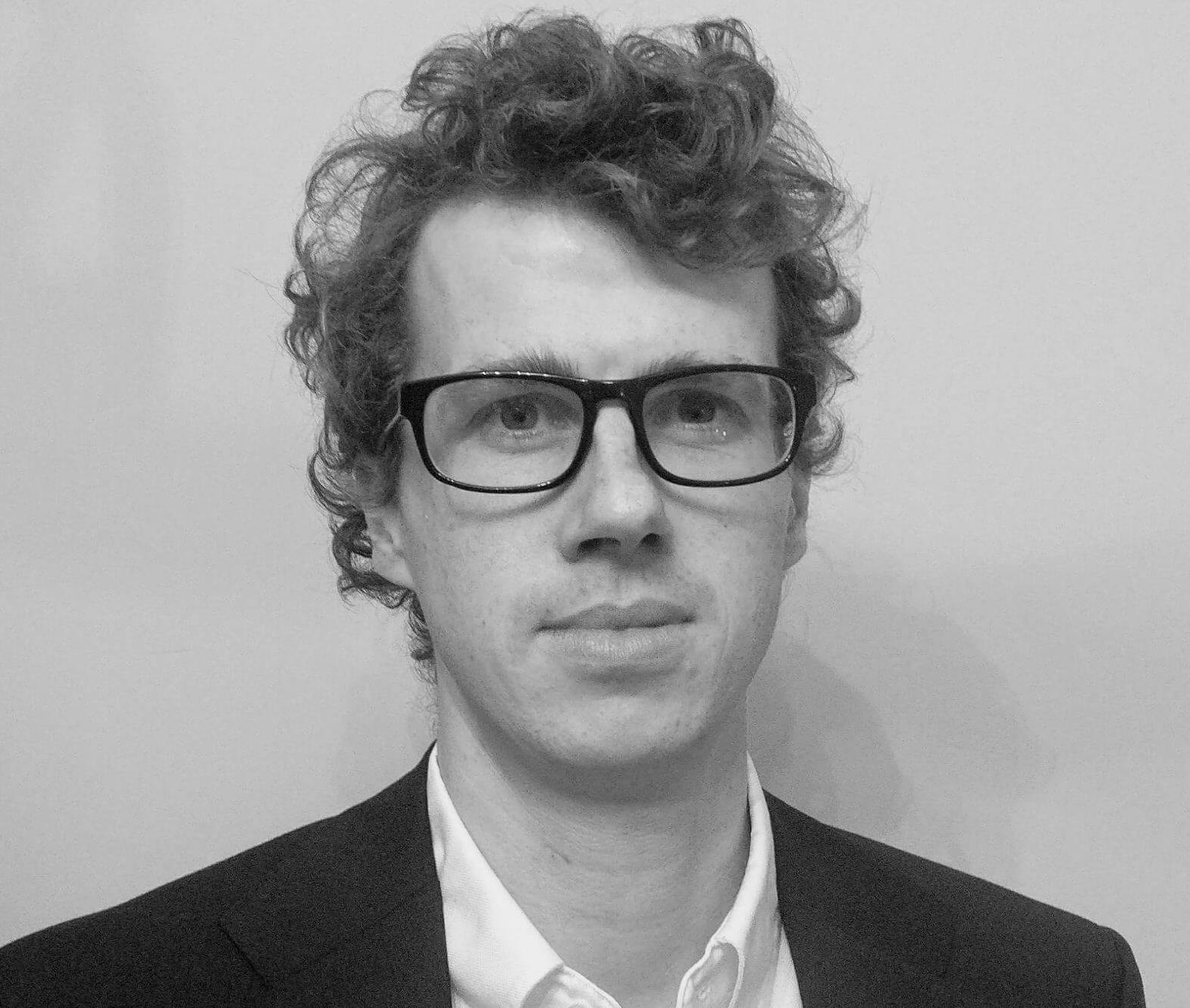Interviews
Stephen Murphy: “The only way to make a cannabis industry is to put patients first”
Published
2 years agoem
By
Laura Ramos
Stephen murphy is an international cannabis pioneer, leading two of the UK-based leading industry structures. At 36, he is the co-founder and CEO of Prohibition Partners, the leading source of analysis on the European cannabis industry, where “100% cannabis people” work. Passionate about the plant and the industry, Stephen Murphy also leads the Cannabis Europa, one of the largest medical cannabis conferences in Europe, which held another edition in London last June, and is now preparing the Business of Cannabis, which will take place on the 3rd of November in New York.
With experience in technologies, digital media and corporate finance, Stephen works with investors, entrepreneurs and regulators to identify, qualify and maximize business opportunities in this promising new area that is cannabis and says he believes Portugal will be the next country to legalize cannabis. adult cannabis use.
We spoke with Stephen Murphy in London, during Cannabis Europa, an event that he believes is “necessary to bring people together”. We got to know a little better his story and what drives him to dedicate his time and talent to this emerging industry, which has to put “the patient first”.
When and why did you start working in the cannabis industry?
Seven years ago. I have always been passionate about cannabis and I have always thought that there is a bias against cannabis users as opposed to those who consume alcohol. If someone likes another staple like cannabis, I don't think they can be discriminated against. And I speak as a white, middle-class male, as we see how cannabis is being used as a tool to stigmatize or implement significant racial discrimination and how this is constantly being used to repress, in terms of laws, against the population. who likes cannabis. I just felt that there is something very unique about this plant, which is so universally appreciated, with wonderful potential in terms of health, medicine, wellness, recreation, pharmaceuticals, food, drink and, as you know, industrial… such great potential, but it's so misunderstood, and I don't know if there will be anything like it in my life. It's so unique that there's a moment in time and I want to be a part of trying to do society right by bringing in the legalization, the normalization of cannabis.
“We have the opportunity to create a fair industry, more aligned with the needs of society”
Stephen can be considered a pioneer in this industry…
I think we're starting, we're in that transition, seeing cannabis becoming more and more accepted, more accessible. The debate now is what is the best way forward, of course, but when we started there were less than eight countries in the world that were legal. Today there are just under 60, not including the United States of America (USA). This is an acceleration that few have predicted and being part of the change is satisfying, but it also gives energy, because you talk to different groups, advocates and patients or politicians or business people, and all stakeholders need to speak and be part of this discussion, which does not happen. in other sectors. For example, the oil industry is not going to talk to the people who are fueling their cars (laughs), whereas in the sector that we are in now, we have the opportunity to create a fair industry, more aligned with the needs of society.

Stephen during his opening speech for Cannabis Europe in June in London
It is clear that Cannabis Europa has an approach that does not forget the patient and that supports the fight for access.
It's a challenge, because you want to put the patient first, especially when we go through legalization. It’s critical to demonstrate to those in the room – and those in the room can be regulators, can be investors, can be operators – the difference in patient experience and development, because obviously what worked for the patient on Monday might be different from what worked for the patient on Monday. which ran on Friday at midnight. The evolution of patient needs is very, very interesting, because it's not a standard pharmaceutical drug, it needs to evolve with the patient and that's something that brings an additional layer of complexity, but it also feeds back into the way businesses develop, how doctors prescribe, what our research and our understanding is like, so it's very cyclical. But it all has to start with the patient, because if we don't understand how it affects their lives, how it affects their health care, well, then we're really missing the point of why we're doing this. The only way, really, in my opinion, to make a cannabis industry is to put patients first.
Where was Stephen born and raised?
So I was born in Ireland and moved to London at age 23. I worked in advertising, for a big food and entertainment brand, for the world of cinema images, Universal Music, Tabasco, Ben&Jerry's for about 3 years, all over Europe… which was a lot of fun, but actually for for me it was like being away from making a real change. It was fun, having creative work in communication, but it was more of an addition to the London lifestyle than anything really more meaningful and impactful. So when cannabis came along and I saw that there was a real opportunity to become a cannabis pro… I had been an entrepreneur and I had built businesses before, but the idea of being a cannabis entrepreneur was so appealing that I kind of dove in. head. I spent time watching what was happening in the US, Canada, I considered joining a cannabis club in Spain, but it was all very gray and I didn't think it was the right way to approach it. You can't make a change from a position where you're already fighting the rules, you have to work within the existing rules and then try to adapt, just like we did in the UK. When we started, there was no legalization or access for patients, today there are about 16 thousand. In terms of the role we play, it's a very small role. Our job, especially with Cannabis Europe, is to bring the right people into the room who can help make the change.
“The idea of being a cannabis entrepreneur was so appealing that I kind of dived in.”
The first thing you did was found Prohibition Partners?
On cannabis, yes. In 2017 we launched the first edition of the European Cannabis Report, which was kind of going into the space, gathering data and information about what was happening in Europe, trying to present a consolidated view to people outside the cannabis space and trying to demonstrate that there was a market here. We have always identified opportunities within the sector, because as it evolves, you can quickly see that there will be stages in the supply chain that still need to be addressed, and in Europe everything is being built from scratch. Traditional brands, traditional companies, CBD companies or food and beverage companies, they don't really get into cannabis, there's still a stigma attached to it, which is obviously both negative and positive: negative, in that it reduces the capital that it moves to space, but positive in that, if you are an entrepreneur or if you are looking at it from a creative point of view, there is a whole panorama that needs to be developed. That's super exciting, you're trying to take the best of other industries and implement it in cannabis. I think that's where we're at right now, people leaving the likes of Google and big tech corporations, financial or big professional organizations and migrating to cannabis. That hadn't happened for two or three years. I think there is more and better talent coming in, which attracts better quality investors, and perception matters, it really matters. “Free the weed” is a great motto, but it hasn't made much headway in thirty years of campaigning, it has failed. So you need to have a more professional attitude, I usually say that it's okay to wear a suit and tie from time to time and have a proper conversation. We are dealing with health, with social reform. These are serious issues that need time to be considered and qualified people who have experience are needed. So it's great to see the professionalization of European cannabis and I think, for better or worse, cannabis will always have a strong cultural side, but at the end of the day, there's a business behind it and, as such, you have a responsibility, both with shareholders and, of course, with its customers.
Where did the name “Prohibition Partners” come from?
I think we wanted a name that was a little strong and chic, but also one that stood out. We wanted to identify with the subject we were talking about, like cannabis and something that is forbidden, which we think is absolute nonsense. Ideally, we will change our name as soon as cannabis is no longer banned worldwide. I think that's probably our long-term mission, but to us, we found it quite ridiculous that cannabis was, and still is, banned. I think the topic and conversation about the ban is terribly frustrating, but yeah… I think the Europeans could see the irony in the name… the Americans not so much. (laughs)
I think it's a great name, although at first I also wondered why “Prohibition”.
We are not supporting the ban, no! (laughs)
Sometimes inverted psychology works. I think it was a good strategy for marketing, because they ended up becoming well known all over the world. Do you have any idea how many people subscribe to the Prohibition Partners report?
About 150 to 155 thousand across our Media group. We have different brands in our portfolio depending on the subject we are talking about, whether it be North America, Europe, business, healthcare, patients. Among our former group, we will be one of the largest in the world. We started in Europe, but we have operations in Latin America, Asia, we have a very large audience in Oceania and, obviously, in North America, so we went global, but we focused a lot on emerging markets.

How many people currently work at Prohibition Partners?
Within the group we have about 40, I think, and they are spread out. We have two main divisions: a technology division, which is leading our market, with Atalis, our new product, which is a B2B marketplace that tries to make cannabis trading in Europe convenient, safe and compliant. We have a database and Media group, which manages our events and publications, but both work together to understand what is happening in the market, what the market needs, who are the main players, etc. So the group we've built is pretty synergistic: we're lucky to have brands that people like, but we're also cannabis people, we're 100% cannabis people. We are passionate about the industry, we are passionate about change, we are passionate about having principles and values in terms of who we work with, in terms of the types of projects we take on, who we have on our team; we are in this for the long term and I would never want to work in any industry other than cannabis.
“We are lucky that we have brands that people like, but we are also cannabis people, we are 100% cannabis people. We are passionate about the industry”
Cannabis Europa is like the Prohibition Partners conference cycle, right?
It's a conference series, yes. 2018 was the first, at the Barbican in London, where we didn't even know what we were doing… and we still don't (laughs), but we're improving a little!
The same happened with PTMC – Portugal Medical Cannabis. We improvised the first conference in 2018, with doctors and researchers from all over the world, but we had no experience organizing conferences. Did the same happen to you?
Yes a little. Part of the team that is with us now has been since 2018. The reason we started a conference was because we knew we wanted to talk about important topics. There are a lot of events, and certainly a lot of cannabis events, but they are run by generic companies or people who are not in the industry and that doesn't represent the direction we want the industry to go. We started Cannabis Europe more as a step towards change, to try to elevate the conversation in terms of access for patients, capital coming in and long term thinking, getting people to leave their jobs of a stable professional company and take over. long-term risks. We thought we could do better than what was done at the time and we still do. Obviously, I think these meetings are fundamental to bring people together. We made it virtual when Covid came, but as humans we need that contact, it's important. And as a small industry, you have to find that person you're going to do business with and build a relationship, gain trust. Events like these are key to that. We've only been here for half a day and the feedback is already overwhelming, in terms of people who have had successful meetings or have already closed deals or already learned something new at one of the talks and that's why we organize events. People want to walk away at the end of the day or two with a new idea, a new relationship. That's our job, to make sure that the day is worth spending, that people step forward and are confident in working in the sector.
How many people came to this edition of Cannabis Europe?
I think just over 1.200 people.
Has Cannabis Europa grown since the first edition or is it different from one city to another?
We did regional events, we took Cannabis Europa to Paris, to Madrid, to start conversations. I don't want to take any credit for the recent results here, but we've taken our conference to New York and Toronto, to encourage US investment in Europe, to demonstrate that Europe is open for business, so it's been more tactical events. . This is a platform we use for change, while in London, which has always been our base, this is the biggest so far. But for us, it's more a question of quality. We have senior leaders here, CEOs, investors, politicians… It's not the salespeople, that's not what we're about. Obviously, we want business development, but it's more corporate-oriented business development that we're focused on building, because that's going to accelerate the change to happen faster.
“It's critical! In the UK it’s been three years, where are we with patient access?”
What are the main highlights of this year's event?
From the point of view of the lectures, I think that, going back to an earlier point, we have a greater focus on the patient and patient access. It's critical! In the UK it's been three years, where are we with patient access? In Germany, in Spain, we have recent news, what does that really mean? And it's that kind of conversation and new ideas that can help inspire, generate new energy and, hopefully, attract investment or talent to help accelerate change. We have a lot of big names that have been on the cultural scene and obviously cannabis has such a close bond with culture and art and music, and that's great for making it more popular, more acceptable. I think it's very important for all of us to recognize that we are working with a plant that is so universally loved and that gives hope not only to patients but to all other sectors and creative industries as well. It's really unique, there's an affinity and it's very important to acknowledge and say, "Okay, it's great to talk about science and so on, but let's educate ourselves about other sectors and be open to how cannabis will be used in society."
How do you see recreational legalization in the UK? Do you think it will happen soon?
Well, I think it will happen within three years.
Following Germany?
Following Germany, following Portugal…
Do you think Portugal will be before the UK?
Yes, yes, I love the Portuguese model, I think Portugal sees a lot ahead. I think the UK will take 3 years, but when they need to throw a bone to the electorate… because it's kind of 50/50 in terms of pro and con, but that's going to change as it normalizes. I think there is still a big educational piece that is needed in terms of “what is cannabis”, because for the most part cannabis is still a street weed, which has high potency and causes psychosis or major harm. And that's the stigma we're trying to fight.
And when it's finally legalized, will it feel like its mission has been accomplished?
No, absolutely not….
So what will be left to do?
There are over 180 countries… we can't and won't stop there! We know how easy it is to revoke things, so yes, I think the mission is global access. Trying to reform drug policy, like, cannabis is the first drug, but reforming drug policy in high society will open access to drugs and open our minds.
“I don't think decriminalization is a good policy, I think it's a terrible policy. I think it's washing your hands without giving support”
Carl Hart will be here tomorrow, who was also a speaker at the PTMC, where he spoke about the future of drug reform. How do you envision the perfect scenario in terms of substance regulation?
I think drugs need to be controlled… They are very powerful and need some level of regulation, or certainly consumer protection. How far this goes, of course it will be an evolution of international drug policy, but I think we as a society need to allow greater access to a wider variety of drugs that are more controlled, where consumers are more educated. Children are going out and everyone is using drugs, experimenting, but nobody knows how much, nobody knows the volume, nobody knows the frequency, nobody knows the purity or the quality... and that is acceptance of consumption and mass consumption ( mass, mass consumption!) and absolute and complete denial about preparing for the experience. They don't have any preparation, you know? They're like, “Okay, I don't mind seeing you take it”… and I think that's the drug policy. It's certainly like Portugal or Germany: they're going to change the domestic drug policy law, they're changing international law and European law, and that will have huge ramifications. Everyone says “Oh, the Portuguese model is progressive”, but it's not… it's been without direction for years and, in fact, it has done more damage. I don't think decriminalization is a good policy, I think it's a terrible policy. I think it's washing your hands without giving support, so the sooner Portugal legalizes cannabis and then takes care of the other drugs. that are decriminalized...
 It's funny that you say that, because in fact Portugal has decriminalized drugs and makes a big fuss about it, but at the same time, the police still invest six months in an investigation to arrest a person who has three plants at home. .
It's funny that you say that, because in fact Portugal has decriminalized drugs and makes a big fuss about it, but at the same time, the police still invest six months in an investigation to arrest a person who has three plants at home. .
But it's also like everyone says “Look at the Portuguese model, they're so progressive”, and you're like “Well, no, they're not, you're the one who doesn't understand the model…” Because actually the progressive, as far as in which it is heading towards decriminalization, it is not addressing the issue in the long term. That's why I'm very excited about the new bill (legalization of personal use), which is business-friendly, they're learning from what happened in Canada, they're looking to support the domestic market. It's not perfect, but…
At least they removed the ban on cannabis-infused edibles and drinks this time…
Which is what they have to do! We have to give consumers what they want.
And you shouldn't say, "You can smoke, but you can't eat." Because it doesn't make sense...
It doesn't make any sense.
But anyway, this time, at least they removed all those bans from the draft law. It's not perfect, but in these legalization projects you always try to ban many things...
They will be the first! Portugal will be the first.
Do you think Portugal will be the first country to legalize adult use?
Yes.
Why do you say that?
They have a good quality team behind them and I believe they will achieve that. There is public support, there is private support and there is legislative support. I think Portugal will be the first. I've been saying this for a long time.
Do you know something I don't? (laughs) Because I feel that, in Portugal, people are afraid to talk about cannabis, it’s like it’s a taboo subject in Parliament…
This is cannabis tourism. This is not home cannabis for users in Portugal. Rooms in Portugal, which have been empty since the Covid pandemic, bring people back to the beaches, bring more people back to tourism in Portugal. It's an economic move that also has an initial benefit, as it addresses the bridge to decriminalization.
So, if Portugal is going to be the first, when will that happen?
I thought it would be later this year...
Do you know I thought the same? Maybe by the end of this year… And the Bloco de Esquerda is already saying that it will schedule the debate on legalization for September, after the summer. The biggest controversy is perhaps the right to grow at home, because many do not agree. But in Parliament, right-wing and left-wing parties all agree to legalize it, but many do not want self-cultivation. I think it's a good first step, but how do you see the Portuguese market and what could happen in the coming years?
I think the access model will be very interesting. I don't know if they will allow it online, I think it will still be controlled by the dispensary. I also think there will be a lot of North American brands coming in and trying to establish their brand, which they now officially have in Europe, like cookies, etc. Licensing dispensaries is quite interesting and there will be demand around owning a dispensary. Then they will become an exceptionally valuable asset. There are already people placing bets with dispensaries, but I don't want to be too confident, I think it's probably still a little early to place a bet around "you're going to get this" or "your facility or location is going to be licensed"... that Portugal will have the influx of North American brands, because they will be one of the first in Europe, and North American brands will want to demonstrate that… because, you know, they can export a generic, they can export their IP, even to some extent, not obviously the material, but they will have their brands in Portugal. I already know a number that is in Portugal waiting for that to happen. As an entry point, it's going to build relationships between the US… but what's also interesting is, if they start to allow international imports, that's something that hasn't been answered yet. Because, well, when you have 84 producers in GACP, what do you need to import for? You can certainly import finished products, you can import edibles, you can import drinks… but yes, there is enough cannabis being grown in Portugal. There is enough cannabis being grown in Portugal that it could supply all of Europe, let alone Portugal. Portugal already has excess production and excess capacity. Just go to a GMP cannabis warehouse in Portugal and see flowers stacked in boxes, stored and stacked. There is already excess supply in Portugal.
“There is enough cannabis being grown in Portugal that it could supply all of Europe. There is already oversupply in Portugal”
And when is a Cannabis Europe in Portugal? Have you ever thought about it?
There is already a fantastic event in Portugal, I'm honest, maybe in collaboration, who knows? If it needs to be used as capital for change, then absolutely.
You know that when you do things in your own country, it is harder for them to be recognized. If someone comes from the outside and does things, then you are really moving things forward…
Maybe because I'm Irish, I end up doing things in the UK, it's different. In fact, we have a lot of Irish people in our company.
I would be very happy to see you do things in Portugal too, so you are very welcome at any time. And I also thank you for this interview.
Thank you thank you very much!
____________________________________________________________________________________________________
[Disclaimer: Please note that this text was originally written in Portuguese and is translated into English and other languages using an automatic translator. Some words may differ from the original and typos or errors may occur in other languages.]____________________________________________________________________________________________________

What do you do with €3 a month? Become one of our Patrons! If you believe that independent cannabis journalism is necessary, subscribe to one of the levels of our Patreon account and you will have access to unique gifts and exclusive content. If there are many of us, we can make a difference with little!
-
Laura Ramoshttps://cannareporter.eu/author/partner/
-
Laura Ramoshttps://cannareporter.eu/author/partner/
-
Laura Ramoshttps://cannareporter.eu/author/partner/
-
Laura Ramoshttps://cannareporter.eu/author/partner/
Related News
-


California raises over $600 million from legalizing cannabis
-


Portugal: Tomorrow there will be a march for the legalization of cannabis in Lisbon and Porto
-


Portugal: Tilray lays off 49 workers and adds fruits and vegetables to its cultivation
-


Medicane announces clinical trial for dementia in Israel
-


Merry Christmas to our readers around the world!
-


Portuguese fund Iberis strengthens its position in the cannabis market

Mais recentes


Portugal: Tomorrow there will be a march for the legalization of cannabis in Lisbon and Porto
Portugal hosts tomorrow, May 4th, the March for Cannabis, with the action taking place in Lisbon and also...


USA: DEA accepts recommendation to reclassify cannabis
The Drug Enforcement Administration (DEA) accepted the recommendation from the Department of Health and Human Services (HHS), a federal agency of the States...


Mila Jansen explains why, at age 80, she is considered the Queen of Hash: “I have grown plants my whole life”
Mila Jansen was born in Liverpool in 1944, but became a citizen of the world from an early age. She tried cannabis for the first time...


Álvaro Covões, who acquired land from Clever Leaves, says he has “no interest in growing cannabis”
At the beginning of April, we reported that Álvaro Covões, founder and CEO of 'Everything is New', had purchased the land where he was located...


Portugal's regulatory advantage in the cannabis industry
In the dynamic landscape of European cannabis cultivation, Portugal has emerged as an interim leader. Although it shares many natural advantages with...


ICBC Berlin shines again. It's the beginning of a new era for the cannabis industry in Germany
ICBC Berlin was the first major international cannabis conference to take place after the legalization of adult use in...


USA: Mike Tyson products recalled for mold contamination
California authorities have issued a mandatory recall notice for two products from Mike Tyson's cannabis brand,...


4:20 is coming and there are celebrations in Porto and Lisbon
The date for celebrating cannabis culture is approaching! This Saturday, April 20th, is the day when...


Paul Bergholts, alleged leader of Juicy Fields, detained in the Dominican Republic
Paul Bergholts, the alleged leader of the Juicy Fields pyramid scheme, has been detained in the Dominican Republic and will be subjected to...


Cannabinoids reveal promising results in the treatment of Borderline Personality Disorder
An investigation carried out by Khiron LifeSciences and coordinated by Guillermo Moreno Sanz suggests that medicines based on...







